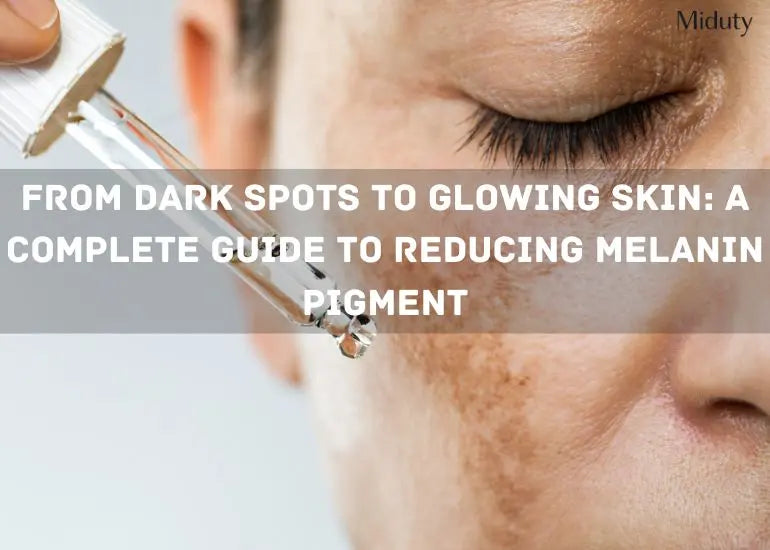
How to get rid of Dandruff at Your Home?
Do you miss going out? Because you feel embarrassed with the white evil on your shoulder and hair strands. White evil- none other than dandruff.
Healthy hair is a result of a healthy scalp and a healthy scalp should be dandruff free. Being on the move and having tiny, small pieces of dry scalp across your shoulders may be rather embarrassing. Who wants chunks of their dry scalp falling off onto their shoulders? No one! Right?
But when you have dandruff, which is one of the most prevalent hair issues that can make you itchy all the time. It makes it difficult for you to wear some of your favorite dark outfits. Dandruff can affect you so much that having it can also lower your confidence and desire to socialize.
Learn everything there is to know about dandruff, including its causes, how to get rid of dandruff, and home remedies for dandruff. Explore my in-depth knowledge of everything related to dandruff to go closer to a scalp that is healthy and content.
What is Dandruff?
Dandruff is a common scalp problem, but still, it manages to lower your confidence.
This peeling of small pieces of dry skin from the scalp could be the result of a fungus known as Malassezia. This fungus grows in a moist atmosphere, which is the reason dandruff becomes more of a problem during the summer and monsoon seasons when people sweat excessively.
Some people have dandruff, especially in the winter, because the chilly wind causes the loss of moisture from your hair and scalp, making it dry and flaking. This causes dryness and itching on the scalp, resulting in dead skin cells gathering and finally falling off your hair.
However, it's rather common and easily treatable; Dandruff is also very common in children. As kids go outdoors for playing activities, they get more prone to dust-related skin issues like dandruff. Dandruff affects up to 42% of newborns and 1% to 3% of people globally. [1] When it comes to children, we must be extremely careful with the products we use or the remedies we try because their skin is extremely sensitive.
Types of Dandruff

It is very important for you to identify which type of dandruff you are experiencing in order to do the right treatment.
- Dry or powdered Like Dandruff
It is the most common type of dandruff where the dandruff particles look small and white. The skin of the scalp becomes too dry and results in irritation and itching.
- Dandruff due to Fungal Infection
This type of dandruff looks greasy, bigger, and darker in color. It is usually caused due to the penetration of yeast in our hair shafts. It results in excessive itching and inflammation of the scalp.
- Disease Related Dandruff
In this type of dandruff, there is redness and round patches in some areas of your scalp. This is majorly seen in Eczema and Psoriasis which happens due to bad bacteria.
What Causes Dandruff?
Dandruff should not be taken lightly because it also causes inflammation on the scalp that may go unnoticed due to the lack of obvious symptoms. You must be thinking what causes dandruff? Aside from a dry and itchy scalp, the following factors lead to dandruff:
- A stressful period of time
- Parkinson's disease which causes excess production of oil in the scalp or an illness such as eczema
- Uneven or harsh brushing of hairs
- Deficiency in minerals such as vitamin B6, Zinc, or Biotin.
- Unwise usage of hair care products
- Heat and pollution
If your scalp is oily or your hair appears greasy most of the time, you are more likely to suffer from dandruff. Even if your scalp is not dry, you may suffer intense itching at times. In severe situations, it might appear as severe itching and worsening flakes, as well as big regions of redness or swelling on the scalp.
It is very important to do dandruff treatment according to its type to see instant results.
Many of you turn to use various anti-dandruff products for dandruff treatment, but did you know that there are many effective and simple home cures that can help you save money on hair care products?
Home Remedies for Dandruff
1. Tea Tree OilTea tree oil is believed to be an effective home remedy to treat dandruff and psoriasis. It has also been shown to have effective antibacterial and anti-inflammatory properties, which may help ease dandruff symptoms. Tea tree oil is excellent against fungi that cause dandruff. [2]
Tea tree oil may also cause irritation in people with sensitive skin. As a result, it's best to dilute it with a carrier oil like coconut oil before applying it directly to your skin.
How to use:
- Add 5-6 drops of Tea tree oil in 10-15 drops of carrier oil like Coconut oil and massage your scalp with it.
- Let it sit for 10-15 minutes and rinse it with water afterward.
- Do this procedure 2-3 times a week until you start to see results.
Omega-3 fatty acids are essential in your body.
Omega-3s are important to skin health. They help in the management of oil production and hydration, the promotion of wound healing, and the prevention of premature aging. [3] A lack of omega-3 fatty acids can result in a variety of symptoms such as dry hair, and dry skin, and are the biggest reason for dandruff.
Fatty fish such as salmon, trout, and mackerel are high in omega-3 fatty acids. You can also take a fish oil supplement or eat more omega-3-rich foods like flaxseed, chia seeds, and walnuts.
3. ProbioticsIt is well known that 90% of problems start from the gut, so it is important to keep the gut healthy for dandruff treatment. Probiotics are good bacteria that have been connected to a variety of health benefits such as allergy relief, lower cholesterol levels, and improved weight loss.
These bacteria may also boost immune function, assisting your body in fighting the fungal infections that end up causing dandruff. [4] Probiotics have also been shown to be beneficial for the skin, preventing skin infections such as eczema and dermatitis.
Probiotics are commonly accessible in supplement form for a quick and convenient dose. They can also be found in beet kvass, kimchi, yoghourt, sauerkraut, idli-dosa, and paneer, among other fermented foods.
4. Argan Oil Based ShampooArgan oil is high in antioxidants and fatty acids, both of which have been shown to help with hair growth and health. This oil's rich composition - full of vitamins, minerals, and fatty acids - makes it an ideal companion for treating an itchy scalp and moisturizing your scalp externally. [5]
Simply replace your current shampoo with an Argan-based one, and you'll notice the difference in a couple of washes. The nutrients will ensure that the scalp and roots are properly nourished, while the antioxidants will help in the fight against dandruff-causing fungus.
Dietary Changes to Avoid Dandruff
Simple dietary changes can significantly reduce the appearance of dandruff, reducing the need for you to use topical medications or home remedies. Some examples are:
- A high-sugar diet promotes inflammation in the body, which can result in the appearance of more and more dandruff. Sugar also deprives the body of vitamin B, which is required for an anti-dandruff diet.
Reduce your sugar intake in any way you can, whether it's through tea, coffee, or eating fewer processed foods. Instead, replace sugar with Stevia and consume antioxidant-rich foods such as dark chocolate, strawberries, blueberries, spinach, grapes, and broccoli.
- B6, biotin, and zinc all contribute to lowering scaliness due to dandruff production. [6] These minerals can be obtained naturally from foods such as veggies, yogurt, carrots, and eggs, or they can be included in the form of multivitamins dietary supplement.
How to cure dandruff permanently?
It can be difficult to get rid of dandruff, but if you take some easy precautions every day, you can keep it from happening. Additionally, those who are suffering from sickness might use these simple steps.
- Apply the appropriate shampoo to your hair. Shampoo with an argan oil base is preferred. Additionally, avoid using this excessively.
- Keep your scalp clean at all times. This requires taking a head shower once every three days.
- Brush your hair with a comb you own.
- Prior to starting work, make sure you have enough rest. Stress caused by lack of sleep leads to dandruff. [7]
- When traveling, be sure to constantly cover your hair.
Conclusion
Although they might look alike to your eye, not all dandruff flakes are the same. Pay close attention to the look of your dandruff flakes and their symptoms to establish the type of dandruff you have. Once this is established, you can successfully start dandruff treatment and prevention.
Although itchy, dandruff can be treated. To relieve dandruff and related symptoms, use natural home remedies and dietary changes mentioned in the blog.
Some Frequently Asked Questions
1. Can Vitamin deficiency cause Dandruff?Yes. Extensive research conducted by specialists has shown that vitamin deficiency can result in dandruff and a scaly scalp in addition to other symptoms like brittle nails, poor night vision, hair loss, and bleeding gums. Low levels of zinc, vitamin B3, vitamin B2, and vitamin B6 can result in severe dandruff, which causes irritation and red patches on the scalp.
Include foods like beans, fish, and nuts in your diet to enhance the health of your scalp and lessen dandruff.
2. Does washing hair every day cause Dandruff?If your scalp is dry, shampooing your hair every day could result in dandruff. The everyday usage of shampoo may not have any negative effects on people with oily scalps. You may, however, wash your hair with normal water every day.
Avoid using hot water to wash your hair because it can cause dandruff and a dry scalp. Shampoo usage needs to be moderate.
3. Can Dandruff spread from One Person to Another?Normally, dandruff does not pass from one person to another. However, if the cause of the dandruff is a fungal illness, it could spread to someone else who uses the same towels to dry their hair. Therefore, avoid sharing towels or clothing with someone who has dandruff caused by an infection.
References
[1] https://www.ncbi.nlm.nih.gov/pmc/articles/PMC4852869/
[2] https://pubmed.ncbi.nlm.nih.gov/12451368/
[3] https://pubmed.ncbi.nlm.nih.gov/32463305/
[4] https://www.ncbi.nlm.nih.gov/pmc/articles/PMC3171853/
[5] https://www.ncbi.nlm.nih.gov/pmc/articles/PMC9231528/#ref13
[7] https://www.ncbi.nlm.nih.gov/pmc/articles/PMC4852869/








